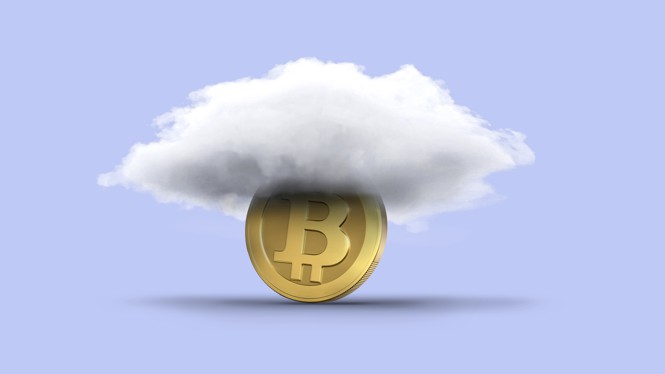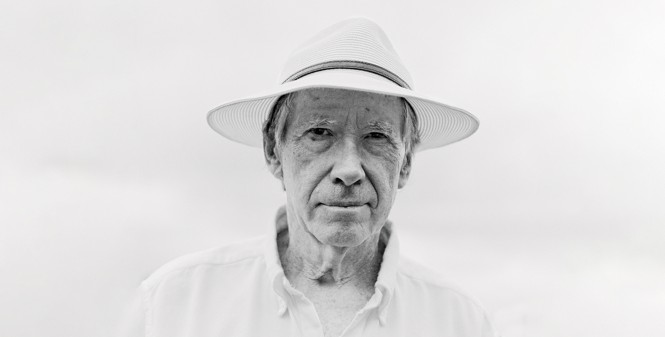
This is an edition of The Atlantic Daily, a newsletter that guides you through the biggest stories of the day, helps you discover new ideas, and recommends the best in culture. Sign up for it here.
War is always a brutal business, but why is the Russian military so determined to inflict civilian casualties on neighboring Ukraine? I talked with a fellow Russia expert.
But first, here are three new stories from The Atlantic.
Run Amok
I spent years teaching military officers who served in conflicts all around the globe. I am not naive about the viciousness of war, and I am grateful that I have never been touched by it. But I am startled by the sheer sadism of the Russian war on Ukraine. Russia’s armed forces are engaging in actions such as leveling cities, intentionally attacking civilian targets, and other apparent war crimes that we would associate with a war of extermination.
I turned to a friend and fellow Russia expert for a more thorough consideration of this. Nick Gvosdev holds a Ph.D. in Russian history from the University of Oxford; he and I taught together at the U.S. Naval War College for many years. (He still teaches there, and his comments here are his personal views and not those of the U.S. government.) We are both Eastern Orthodox Christians ourselves, which adds an especially painful aspect for us to this immense tragedy. We have had many conversations about the war, the latest of which I now offer to readers trying to understand this terrible conflict.
Tom Nichols: Nick, international-relations experts will hash out the “great power” dimensions of this war, but at the ground level of the actual fighting, why is the conflict so brutal? Is it really enough to say that the Russians are reacting to the humiliation of losing almost from the start?
Nick Gvosdev: To some extent. At all levels of Russian society, from the cab driver in the street to the Kremlin insider, there was a strongly held belief that Russian forces would be greeted as liberators, especially in the Russian-speaking areas of Ukraine. Indeed, the initial Russian military plan was based on the assumption that Ukrainian soldiers would refuse to fight and Ukrainian politicians would defect. This turned out not to be the case. Even more striking, it was the two largest Russian-speaking cities in Ukraine—Kharkiv and Odesa–which proved to be focal points of the successful blunting of the Russian invasion.
Nichols: That last point seems to be important.
Gvosdev: Yes. Western Ukraine—at least those areas that were never under Russian imperial rule and were part of the Habsburg realm—stressed their separateness from the Russians and were always the heartland of Ukrainian nationalism. But almost all the atrocities we’ve seen have targeted people precisely in those parts of Ukraine that are part of the Russian-speaking world. There does appear to be a strong undercurrent of giving these “traitors” their due recompense.
Nichols: I don’t think this is fully understood in the West. The Bucha massacre, for example, was aimed at Russian speakers—almost as if they infuriated the Russians more than Ukrainian nationalists did.
Gvosdev: Bucha was a special target, for sure, given its position as a bedroom community for Ukrainian government workers and military officers. But this is all a direct outcome of appropriating a World War II narrative in which the Ukrainian government is routinely described as a Nazi regime and those fighting the Russians are fascists. Meanwhile, Russian social media routinely uses the term “Allied forces”—with all the connotations from the Second World War that description carries—to characterize the Russian military and the militias of the Donetsk and Luhansk republics. So, think about it: If the Ukrainian military and government are the modern-day successors of the Nazis, then of course no quarter should be given to those who fight on the side of the fascists—and especially those who’ve betrayed their kin.
Nichols: What about the Russian military? Is there something in their training and background that makes them harder to control? They certainly haven’t improved since the Soviet days in their effectiveness as a fighting force.
Gvosdev: Russia tried to create a professional all-volunteer army, but it’s still living with Soviet-era “traditions,” including brutalizing its own recruits—the so-called dedovshchina—and a strict hierarchical command structure. Add to this the ongoing problem of corruption within the military and you create an ethos where brutalizing others is preferable to being subject to it yourself. One other point: The Kremlin is anxious to avoid calling for a general mobilization, and so, as the U.S. did during Vietnam, a number of soldiers fighting in the Russian military in Ukraine chose military service rather than prison.
Nichols: I almost didn’t believe that when I saw it.
Gvosdev: Worse, Russians have also been relying on mercenaries and militias, another place where people with criminal records can end up. In many of these cases, atrocities were the result of some of these people being allowed to run amok with no particular supervision or discipline from the top other than general directions to punish “traitors” or eliminate “Nazis.”
Nichols: Ukraine, by contrast, figured out that having a solid and reliable noncommissioned-officer corps works wonders in the field.
Gvosdev: Absolutely. Ukraine’s military reforms over the last several years, along NATO standards, also allowed its military to carry out more decentralized operations.
Nichols: It seems like the most powerful “force multiplier” in the Russian military is resentment: You’ve betrayed us, you live better than we do, you’ve elected your own government, and so … you’re Nazis and we can do to you what we did in World War II.
Gvosdev: That’s the logical outcome, and how you get from “brothers and sisters” to wholesale carnage. Ukraine, in Russian eyes, has turned its back on its brother Russia, and by seeking to integrate with the Western world, has driven a sword into the heart of the “Russian world.” Russian politicians and pundits hammer those themes every day. This “betrayal” narrative is linked to the overall Russian resentment of Europe and the West. Some of it is connected to living standards, to be sure, but it is also driven by the sense that Europeans—and now Ukrainians as well—look down on Russia as not quite European, definitely not Western, and maybe not even civilized. And that resentment leads to a Russian determination to make others share in Russia’s misery, whether by bombarding Ukraine or by sparking an energy and economic crisis in the rest of Europe.
Nichols: I’m feeling an uncomfortable parallel here with events in the U.S. and some other countries.
Gvosdev: The politics of resentment are always the doorway to legitimizing mindless fury and anger—and ultimately violence—against those you deem to be traitors or evildoers as being a justifiable response to “being looked down on.” Russians don’t have a monopoly on this.
Related:
Today’s News
- King Charles III delivered his inaugural speech on his first full day as monarch, emphasizing his sense of duty following the death of his mother, Queen Elizabeth II.
- A federal judge dismissed Donald Trump’s lawsuit against Hillary Clinton. Trump had accused the former secretary of state of spreading false information that his campaign had colluded with Russia during the 2016 presidential race.
- The Justice Department asked Judge Aileen M. Cannon to lift her block on the investigation into Trump’s handling of classified documents. Earlier this week, Cannon granted Trump’s request for a special master, which could prevent federal prosecutors from accessing key evidence.
Dispatches
- Unsettled Territory: Imani Perry on the uneasy link between the Little Rock Nine and today’s Jackson, Mississippi water crisis.
- Work in Progress: Derek Thompson offers five pieces of career advice particularly useful for this “wobbly economic moment.”
- The Books Briefing: When writers draw from older stories, they have an opportunity to provide a new perspective, Maya Chung writes.
Evening Read

Crypto’s Core Values Are Running Headfirst Into Reality
By Will Gottsegen
Crypto was taking off, and governments were finally starting to act like it. In 2013, when a young writer and software developer named Vitalik Buterin wrote an impassioned screed defending the blockchain gospel for his publication, Bitcoin Magazine, cryptocurrencies were still a niche curiosity. But a series of regulations was spooking the nascent industry, threatening the sort of anti-government ethos that has always been core to the project. For Buterin the panic felt a little overblown. Crypto, he argued, couldn’t truly be regulated. After all, this was the whole point of the new system: an internet with no masters, no mediators, and no guardrails. “The future of crypto-libertarianism is fine,” he wrote. “Stop worrying.”
More From The Atlantic
- The problem with kindergarten
- Zero COVID has outlived its usefulness. Here’s why China is still enforcing it.
- Where the hatred comes from
- Photos of the Week: Drum major, ox catch, ferret race
Culture Break

Read. Ian McEwan’s new anti-memoir, Lessons, in which the author’s alter ego explores how McEwan’s “charmed life” could have gone wrong.
Watch. How people across America celebrate their Saturday nights. From a queer bar in Florida to a havdalah ceremony in Massachusetts, our Atlantic interactive staff shares photos and videos from around the country.
Do. Get your tickets for The Atlantic Festival, live at The Wharf in Washington, D.C., (as well as virtually) September 21–23. For a limited time, Daily readers can use the code SPECIALACCESS for complimentary in-person registration. Find out more here.
P.S.
In Wednesday’s postscript, I noted the brief time when Russians looked with open eyes at their own history. One of those Russians was a Soviet army general and historian named Dmitry Volkogonov, once so hard-line a communist and so trusted by the regime as both a military officer and a scholar that even in the 1970s and early 1980s he was given access to highly restricted Soviet historical archives. Volkogonov (whose own father was arrested and shot during Stalin’s purges) was so shocked by what he found in the secret documents that he turned against Soviet communism. He later wrote several books drawing from these archives, including magisterial and damning biographies of Stalin and Lenin, for which many of his former comrades reviled him as a traitor. Shortly before he died in 1995, he said: “The only thing I can be proud of—the greatest merit of my life—is that I was able to fundamentally alter my views.” He left behind works that revealed the many sins of the Soviet regime, including Autopsy for an Empire: The Seven Leaders Who Built the Soviet Regime, which makes for especially fascinating reading today as Vladimir Putin tries to re-create the old Soviet Union.
—Tom
Kate Lindsay contributed to this newsletter.

.png?w=600)





